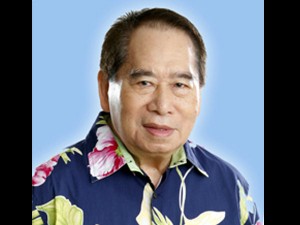MANILA, Philippines—Macau casino giant Melco Crown Entertainment has committed to invest up to $580 million in a Philippine entertainment complex as a strategic partner of tycoon Henry Sy, becoming the single largest investor in a “world-class” entertainment complex jumpstarted by Belle Corp.
In a disclosure in Hong Kong Thursday night, Melco announced that its wholly owned subsidiary MPEL Projects Ltd. had entered into a memorandum of agreement with SM group, Belle and Belle’s subsidiary PremiumLeisure and Amusement Inc. (PLAI).
They agreed to negotiate in good faith and sign within 60 days a consortium agreement on certain implementing agreements for the leasing, development, operation and management of certain parcels of land located in the Philippines, including the further development of the building structure and shell of a grand casino and hotel complex into a “world-class casino, hotel, retail and entertainment complex.”
The execution of the consortium agreement is conditional upon registration of the project site as a tourism economic zone by the Philippine Economic Zone Authority, Melco said. British Virgin Islands-based MPEL Projects or an affiliated party will operate the gaming and non-gaming operations as lessee, the disclosure said.
“MPEL Projects’ total investment over the course of the project is expected to be no more than $580 million, contributed by a combination of cash, cash flow and debt financing. It is expected that a loan facility of approximately $320 million may be made available to MPEL Projects to part finance the project,” it noted.
The disclosure said the Philippine Amusement and Gaming Corp. had issued a provisional license to the consortium and intends to issue a regular casino gaming license upon satisfaction of certain conditions referred to in the provisional License. MPEL Projects shall also be included as a member-licensee of the provisional license.
Under the terms of the provisional license, Pagcor requires the consortium to make a minimum investment of $650 million at the start of commercial operations and a total of $1 billion for the entire project.
The execution of the consortium agreement is conditional upon registration of the project site as a tourism economic zone by the Philippine Economic Zone Authority.
“The company, while currently solely focused on Macau, actively evaluates future expansion opportunities throughout Asia, particularly given the region’s expected economic growth and further development of its leisure and tourism industries. Asia is widely regarded as the fastest-growing gaming region in the world, as evidenced by the size and growth of Macau’s gaming market,” Melco said.
The success of Macau as a gaming and entertainment destination , Melco noted, had led to the proliferation of gaming across the Asia Pacific region, driving the development of casino, hotel, entertainment and retail resorts, as recently illustrated in Singapore.
Melco noted that the Philippines was a popular tourist destination in Southeast Asia and closely located to a range of important tourism markets, including South Korea, Taiwan, Japan and China. In 2011, the Philippines Department of Tourism recorded 3.9 million visiting tourists. While South Koreans and Americans are the largest tourist groups, China continues to contribute a greater share of visitors to the Philippines.
“The expansion into new jurisdictions where the company expects strong returns on capital will further diversify the company’s exposure in Asia, delivering incremental sources of earnings and cash flow and providing the company with a larger platform for further expansion and opportunities to drive shareholder value,” the disclosure said.
Melco sees its experience in developing world-class integrated resorts such as the City of Dreams in Macau to allow it to take advantage of the anticipated growth in the leisure and tourism industries in the Philippines. The disclosure said the Philippine complex would “cater to an increasingly affluent and growing Asian middle class who continue to seeking new travel destinations and experiences.”
